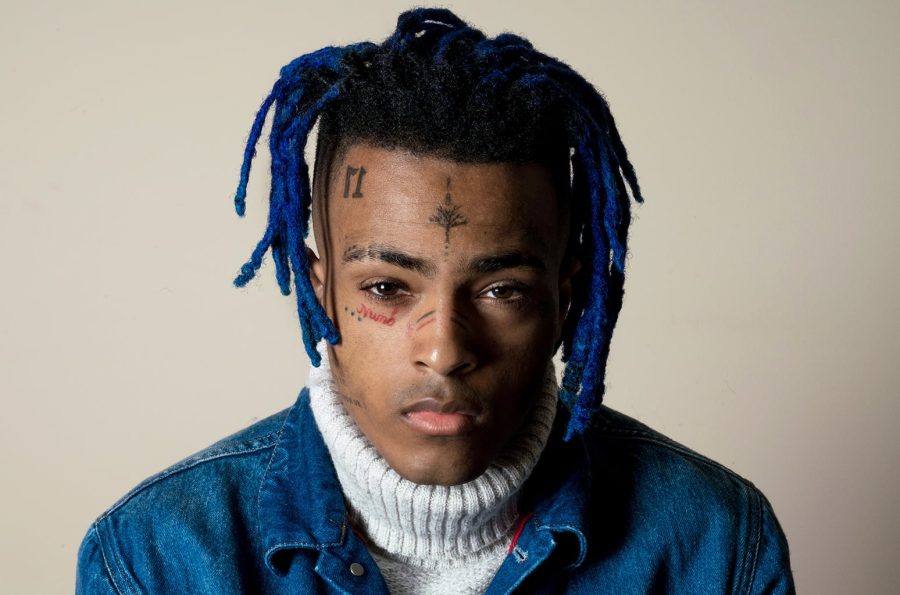In recent months, the music industry has seen tragic losses of life, raising questions regarding how to handle the unfinished art that is left behind.
June 25, 2009. This date is significant as many individuals can quickly recall where they were when they heard that Michael Jackson, the King of Pop, had passed away. Michael Jackson was a star from his youth onward, and he left this Earth with a legacy ranging from the music of the Jackson 5 to his various solo projects. Despite his passing, his music will live on forever.
June 29, 2018. Drake, one of the biggest names in modern hip-hop, released his album “Scorpion,” which featured vocals from the late Michael Jackson. Obviously, Jackson was not able to record his voice on the song “Don’t Matter to Me.” Drake simply obtained the rights to Jackson’s previously recorded and unfinished vocals.
Many fans quickly went to social media, tweeting about the eye-catching feature Drake had on his tracklist, but for many, it instantly felt wrong. It was immediately called to question: Would Jackson want to be on a Drake album? Regardless of whose approval Drake was able to buy, there is no way to determine how Jackson himself would have felt about this decision made on his behalf. Jackson’s name will always be attached to a Drake album he never agreed to be a part of. His unfinished vocals will now sing the hook to a song he never heard, and it does not seem morally correct. Some may argue that because the artist is gone, what is done thereafter holds no significance, but art will always be different. An artist should have the ultimate say in what they are attached to, and in a situation where they are incapable, it does not imply a pass. Music itself is vastly personal, and what is released to the world should be representative of what the artist intended.
As time passed, this “Don’t Matter to Me” controversy seemed to fade away, and “Scorpion” slowly fell off the charts. However, the issues of posthumous music releases continue to trouble the music industry.
In recent months, the hip hop music community has tragically seen the passing of two of its most heralded young talents, XXXTentacion and Lil Peep, at the ages of 21 and 20, respectively. With this came what is to be expected — grieving fan bases, left to wonder what could have been and only left to appreciate what the artists had already released. The community would listen to the work these artists had poured their hearts into and would be able to reminisce with the music left behind.
To this day, “Rest in peace X” and “Rest in peace Peep” fill the Twitter feeds, Instagram stories, and every social media outlet imaginable. Nonetheless, there was too much money that could be made after the artists’ death to let this be true, too much money left on the table for these artists to truly rest in peace. Executives saw a market that would undoubtedly stream a posthumous album to the top of the charts, pulling in revenue for just about everyone at the expense of artistry and baseline respect. The industry is cutthroat, and that doesn’t change when tragedy presents itself.
Grieving fanbases hoping to hear just one more song were an exploitable market that apparently couldn’t be passed up. With unfinished vocals and pieces, both artists had albums released on their behalf. XXXTentacion’s “Skins,” was released over five months following his passing. The reaction was just as to be expected — his young and adoring fans streamed the album to the top of the charts. However, many are left to wonder, who are they really listening to? The music that is climbing the charts is that of various producers, sound engineers, and individuals who are not representative of X himself. Despite efforts to match the artists tastes, it is undoubtedly the case that the music released, had X himself been alive, would minimally have several different aspects to it. No matter the intentions behind the various individuals finishing the album, it is impossible to capture the essence of an individual who is not longer with us.
Undoubtedly, the vocals of XXXTentacion are those featured on the album, but the art is not up to par with the work he released prior to his death. XXXTentacion was an artist who deserved to have the final say in his art that is released to the world. No matter what the artist’s contractual obligations are, they should be abolished the second an individual tragically loses their life.
The music that is being streamed by millions across the world delivers artistic work that is not of Michael Jackson, XXXTentacion, or Lil Peep. These artists have been wronged and forcibly have their names attached to music they did not approve, art they did not create, and a message they may not even share. These fallen artists may turn in their graves as executives capitalize on work that should have been stamped void in favor of letting their already established legacies live on as they were, and their spirits live on in peace. “Rest in peace” means nothing if they may not truly be in peace. There are few situations where morality is an objective item, but when it comes to dealing with issues such as these, there is no argument. Art, no matter its form, should be created by the individual it claims.
Image courtesy of Billboard.com.








